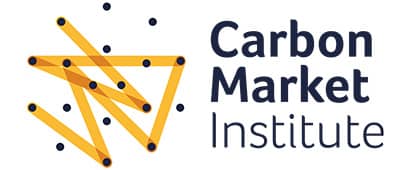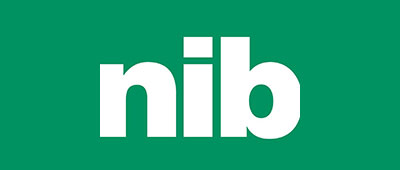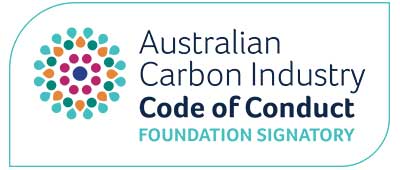Leadership in the time of Chicken Feed
BY SEAN APPOO
Ever heard of the sayings fighting like crabs in a bucket? Or wrestling over resources like seagulls with a chip? These terms are all too familiar to Aboriginal and Torres Strait Islander people working in Community organisations.
Indigenous People have structural barriers hampering them from building generational and institutional wealth that are not encountered by others in the community. During the ongoing process of colonisation our lands have been “taken” away from us and transferred to others for them to generate their wealth at our expense, by a range of means including farming, mining, buildings, housing and rent and so on and so on. We had no choice but to help the status quo build themselves.
Even when Traditional Owners have gone through the lengthy and onerous Native Title process their lands are still governed by specific legislation imposing how those lands can be used. It’s like giving someone a fishing rod after it’s been used for years, it’s got no hooks, the reel doesn’t work properly, and it can only be used to catch certain fish. Oh… and the rod can be taken back if they want to. The status quo giveth… and the status quo can taketh away.
Our People were used for cheap labour in the process of nation building. Find that hard to believe? Check out the recent Stolen Wages settlement in WA for Aboriginal and Torres Strait Islander people who worked in Western Australia for little or no wages between 1936 and 1972. There are lots of problems with this… firstly, if you were an Aboriginal and Torres Strait Islander person of working age in 1936 there is very little chance that you are alive today so you’ve had NO reward for your hard work; secondly, this practice went on for almost 40 years in the case of WA; next, if you type stolen wages Aboriginal into Google the suggested searches cover every state; lastly, every state WAS involved in this practice.
Not only was important infrastructure like roads, bridges, and railways built cheaply with Aboriginal and Torres Strait Islander labour, but the economic benefits of that infrastructure was kept out of the pockets of the builders for generations, and their descendants made to go through a maze of provenance to stake the claims of their ancestors. The status quo has been built on the backs of Aboriginal and Torres Strait Islanders along with other Blak bodies from the Pacific.
It seems that every generation of Aboriginal and Torres Strait Islander people is working to get on the scoreboard of generational wealth, only to be overtaken again and again because the rules dictate and maintain an uneven playing field. The fair go… what is that if you’re outside the status quo?
So it is, for our organisations working to provide social services like health, education, employment, and business development. Competitive tenders for drop in the ocean amounts of funding are a way of life for these critical supports of our Communities. Most of these tenders usually take a lot of time and resources to develop and submit, while the reporting and acquittal processes alone could probably use up the total funding allocated for wages and resources.
The unrealistic expectations and funding application processes put on our organisations to survive so that we can work our arses off and hold a mirror to the colonial project is exhausting and results in a high incidence of burnout. There are many more issues outlined in this piece by Ben Abbatangelo titled Self-determination can’t be achieved through compromised finance.
Following a 90minute meeting with a company executive recently we had to fill out a proforma document outlining every detail of our existence, stopping short of demanding how many teaspoons of sugar we have in our tea (it’s none by the way). Experience has taught us to recognise a “tyre kicker”, and when we dared inquire about the purpose of the process and their seriousness in engaging in a partnership of mutual benefit their embarrassment at being correctly identified was covered up with indignant rebuttal. We’re steadily weeding out the status quo through a process of self-elimination.
If we’re suffering under the weight of Indigenous disadvantage and a perceived lack of intelligence, then why don’t these smartest people in the room justify their salaries and analyse and translate this information we readily and regularly share, into the formats they require? The status quo has the advantage of inertia and outsourcing mental lifting.
Amongst many of the Aboriginal and Torres Strait Islander people I’ve spoken with post Voice referendum, there is a growing transformation of frustration into confidence that we will be more assertive in our championing of many issues regarding our own lives. The status quo doesn’t really care. We’re a tick-a-box exercise that has resulted in little change.
The 60/40 split (approximately) of the Voice referendum immediately made me think the SBS series First Contact from 2014-2016. The premise of the show is that 60% of European Australians have never had any contact with Indigenous people, a statistic that may explain the prevalence of the racist, unsympathetic and generally prejudicial attitudes that are often directed towards Indigenous Australians. In the 7-9 intervening years nothing has changed under the current status quo. Time for a change.
We know the issues and the solutions, and we will start outlining and promoting them loudly and proudly. We are not going cap in hand to the status quo anymore. We are developing smart and nuanced business cases, such as the Catalyst Markets trading platform, that detail the return on investment along with the social, cultural, and environmental impacts and we’re nailing them on the doors of the status quo, with the envelope labelled Ignore at Own Risk.























